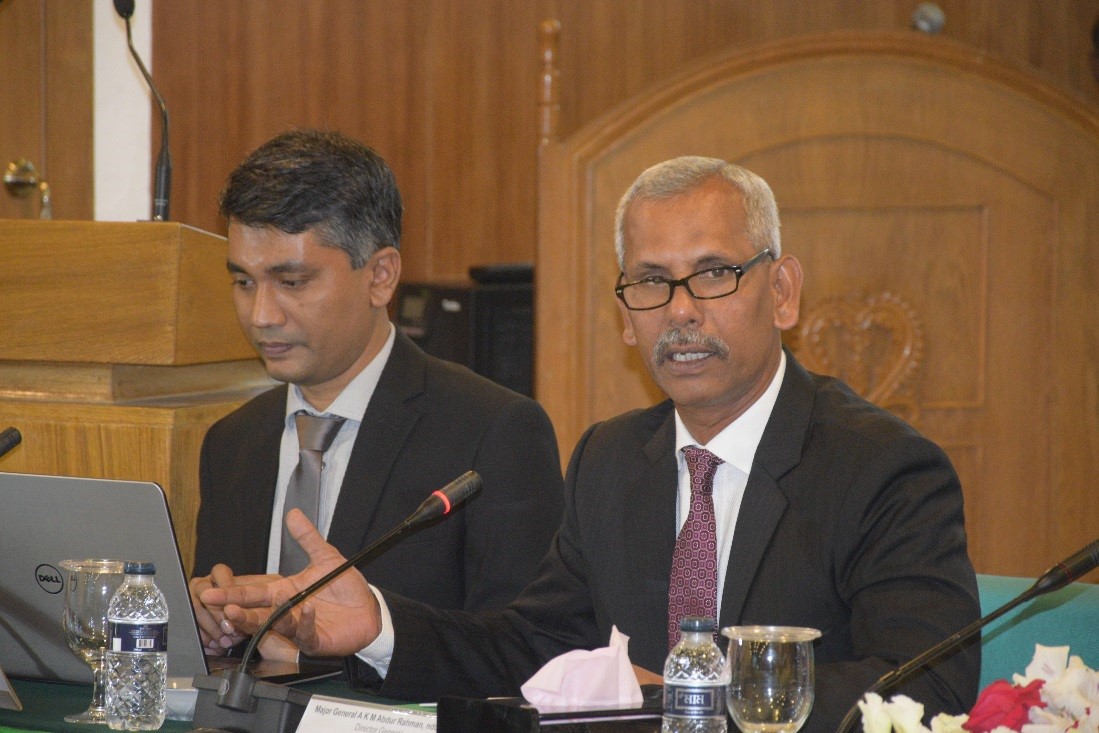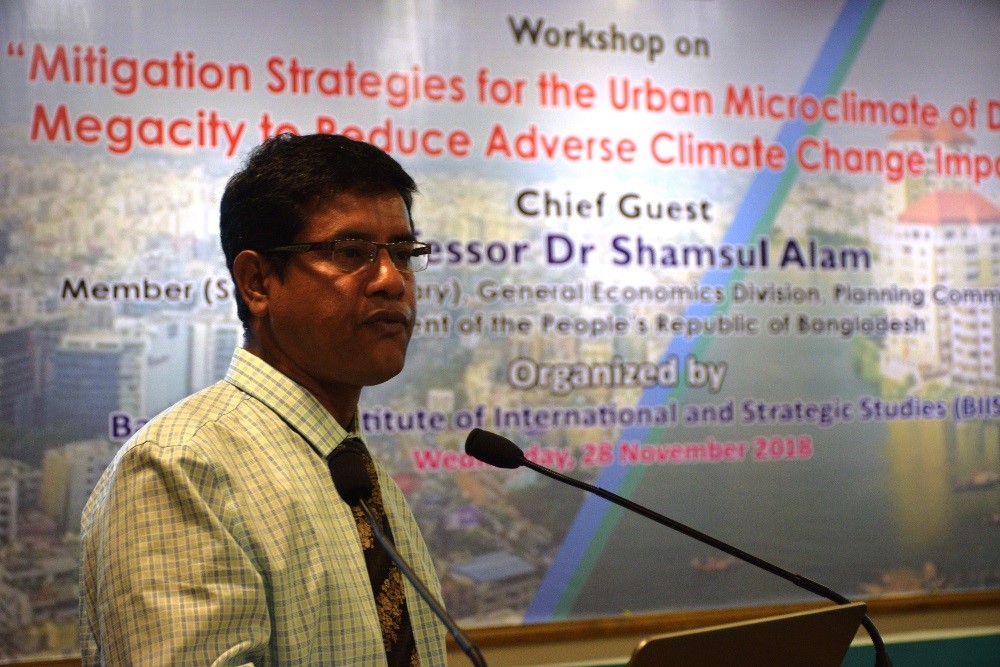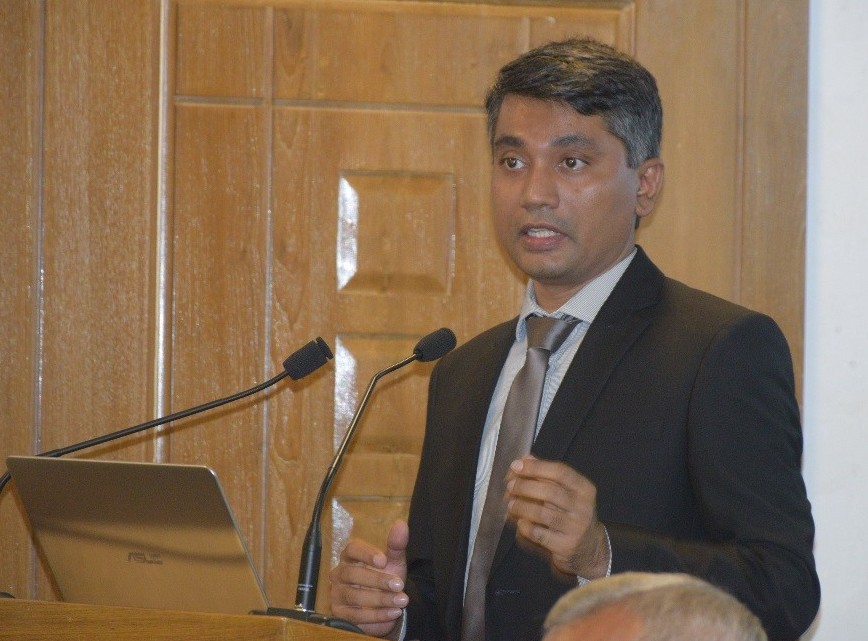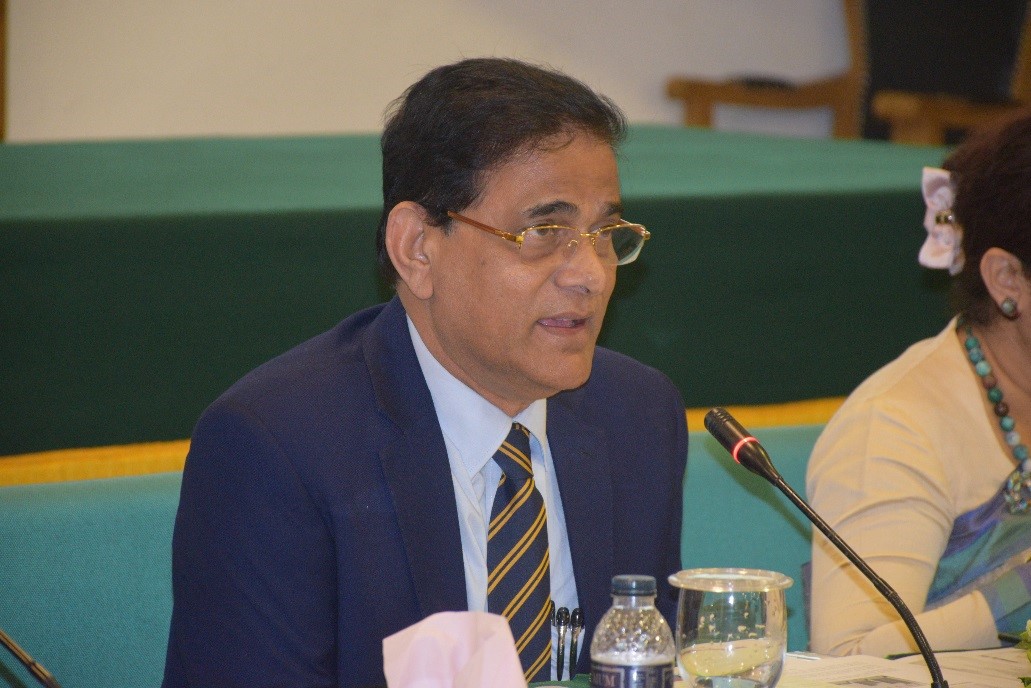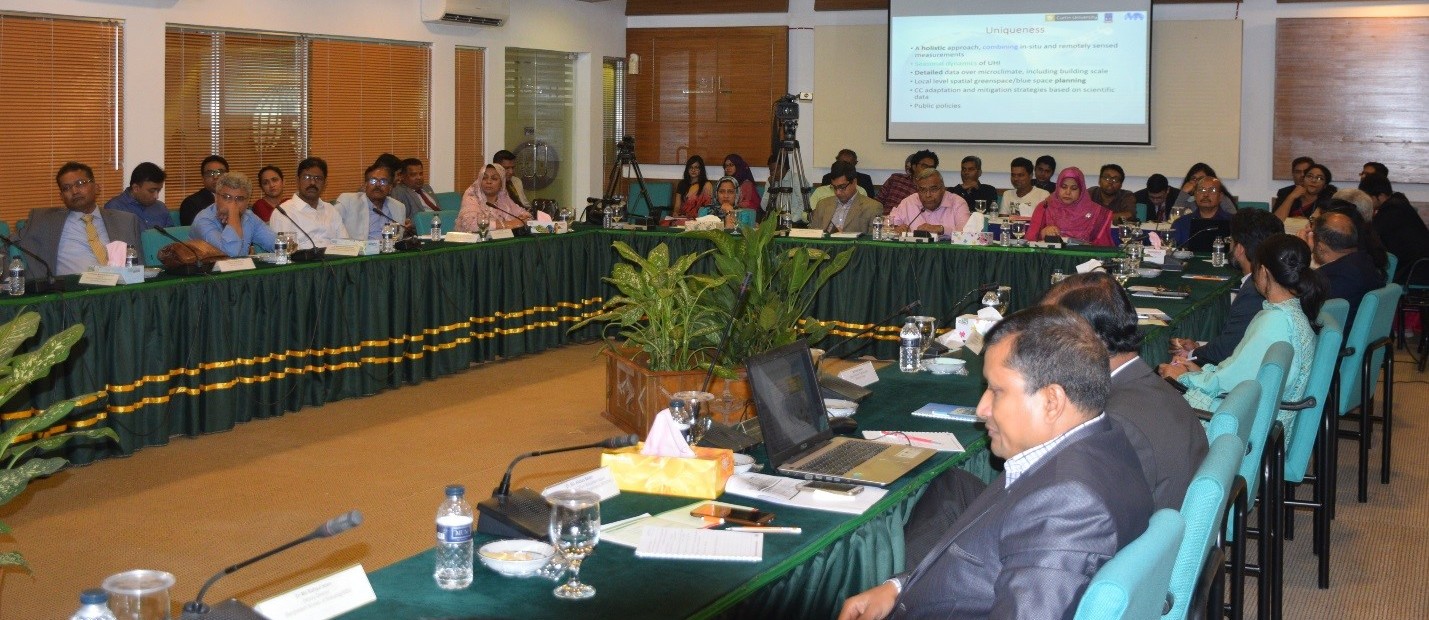Seminar on "Bangladesh Delta Plan 2100: Implementation Challenges and Way Forward on 24 December 2018
DATE: 2018-12-24
Bangladesh Institute of International and Strategic Studies (BIISS) organised a seminar on "Bangladesh Delta Plan 2100: Implementation Challenges and Way Forward” on Monday, 24 December at BIISS auditorium in collaboration with General Economic Division, Bangladesh Planning Commission, Government of Bangladesh, with a view to exchanging ideas and knowledge on Delta Plan 2100. Dr Mashiur Rahman, Advisor to the Honourable Prime Minister on Economic Affairs, Government of the People’s Republic of Bangladesh, graced the occasion as the Chief Guest. Ambassador Munshi Faiz Ahmad, Chairman, Board of Governors, BIISS, chaired the seminar. Major General A K M Abdur Rahman, ndc, psc, Director General, BIISS, delivered the Welcome Address.
The seminar began with a keynote presentation titled "Bangladesh Delta Plan 2100: Implementation Challenges and Way Forward” by Dr Shamsul Alam, Member (Senior Secretary), GED, Bangladesh Planning Commission, Government of the People’s Republic of Bangladesh. Mr. Abdullah Al Mohsin Chowdhury, Secretary, Ministry of Environment, Forest and Climate Change, Government of the People’s Republic of Bangladesh; Dr Saleemul Huq, Director, International Center For Climate Change and Development; Professor Dr M Monowar Hossain, Executive Director, Institute of Water Modelling (IWM); were presented as distinguished panelists at the seminar. They discussed on different aspects of issue including economic considerations, safety from floods and climate change related disasters; enhancing water security and efficiency of water usages; ensuring sustainable and integrated river systems and estuaries management; conserving and preserving wetlands and ecosystems and promoting their wise use.
In his address, the Chief Guest Dr Mashiur Rahman, flagged that Bangladesh as a country was facing several harsh impacts of climate change. He talked about the various initiatives that the government has undertaken on the issue. He also underscored the necessity of this plan.
The seminar included a lively open discussion where senior officials from different ministries of Bangladesh, management authorities, representatives from different relevant organisations, academia, researchers, teachers from various universities and media representatives participated and expressed their valuable opinions and observations on the topic. They raised their concern over the vulnerability of Bangladesh in terms of risk from natural hazards, water and food security, economic growth along with the advantages and disadvantages of this comprehensive plan of Bangladesh.


